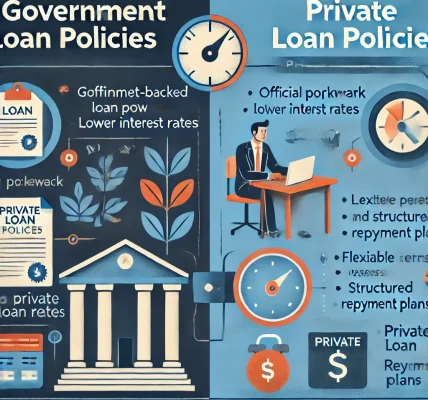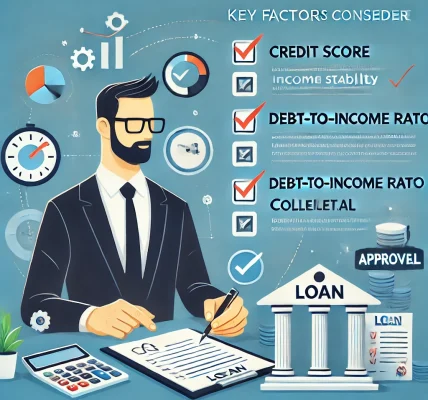Introduction
When seeking financial assistance, borrowers often find themselves choosing between a personal loan and a business loan. Each serves a distinct purpose, has different eligibility criteria, and offers varying terms. Understanding their differences can help you determine which loan best suits your financial needs.
Understanding Personal Loans
What is a Personal Loan?
A personal loan is an unsecured loan taken by an individual for personal expenses such as medical bills, home renovations, education, or travel. Since it does not require collateral, lenders primarily assess the borrower’s credit score, income, and repayment ability before approval.
Key Features of Personal Loans:
- No Collateral Required: Borrowers do not need to pledge assets.
- Fixed Loan Amount: Loan amounts typically range from $1,000 to $50,000, depending on the lender.
- Flexible Usage: Funds can be used for multiple personal financial needs.
- Shorter Repayment Terms: Tenures generally range from 1 to 7 years.
- Higher Interest Rates: Due to the unsecured nature, interest rates are often higher.
Pros and Cons of Personal Loans
Pros:
- Quick approval process.
- No asset risk.
- Fixed monthly payments.
Cons:
- Higher interest rates compared to secured loans.
- Limited borrowing amount.
- Strict eligibility criteria based on creditworthiness.
Understanding Business Loans
What is a Business Loan?
A business loan is specifically designed to support business operations, such as expansion, purchasing equipment, or managing cash flow. These loans can be secured (requiring collateral) or unsecured.
Key Features of Business Loans:
- Higher Loan Amounts: Businesses can borrow significantly higher amounts based on financial health.
- Longer Repayment Periods: Tenures typically range from 5 to 25 years.
- Collateral May Be Required: Some lenders may require business assets as collateral.
- Purpose-Specific Usage: Funds must be used strictly for business needs.
- Lower Interest Rates: Often lower than personal loans, especially for secured loans.
Pros and Cons of Business Loans
Pros:
- Higher borrowing limits.
- Lower interest rates (for secured loans).
- Helps build business credit.
Cons:
- May require collateral.
- Approval process is longer and more complex.
- Requires strong financial and business documentation.
Key Differences Between Personal and Business Loans
| Feature | Personal Loan | Business Loan |
|---|---|---|
| Purpose | Personal expenses | Business expenses |
| Collateral | Not required | May be required |
| Loan Amount | $1,000 – $50,000 | $10,000 – $5 million |
| Interest Rate | Higher due to no collateral | Lower for secured loans |
| Repayment Tenure | 1 to 7 years | 5 to 25 years |
| Approval Speed | Faster | Requires more documentation |
Which Loan is Right for You?
Choose a Personal Loan If:
- You need quick cash for personal expenses.
- You do not have assets to offer as collateral.
- You prefer a simple and quick approval process.
- Your borrowing amount is relatively small.
Choose a Business Loan If:
- You need funds specifically for business operations or expansion.
- You are willing to pledge collateral for lower interest rates.
- Your business has strong financial records and repayment capacity.
- You need a larger loan amount and a longer repayment period.
Conclusion
Both personal and business loans serve distinct financial purposes. If you need immediate funds for personal expenses, a personal loan is the better choice. However, if you require substantial funding for your business, a business loan offers better terms and benefits. Carefully assess your financial situation and compare loan options to make an informed decision.
Before applying, always check the terms and conditions, compare interest rates, and ensure you meet the lender’s eligibility requirements to avoid any financial setbacks.



